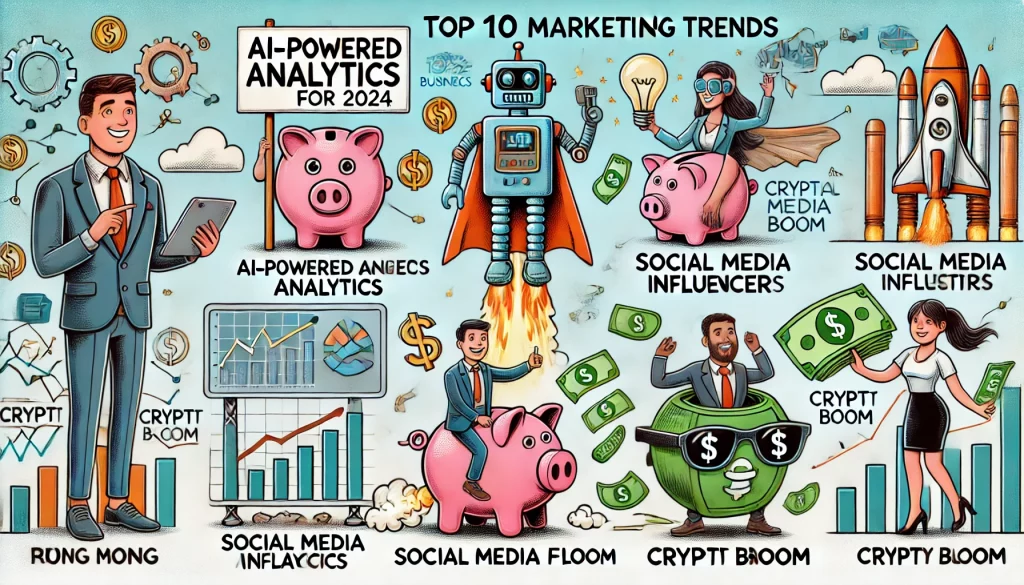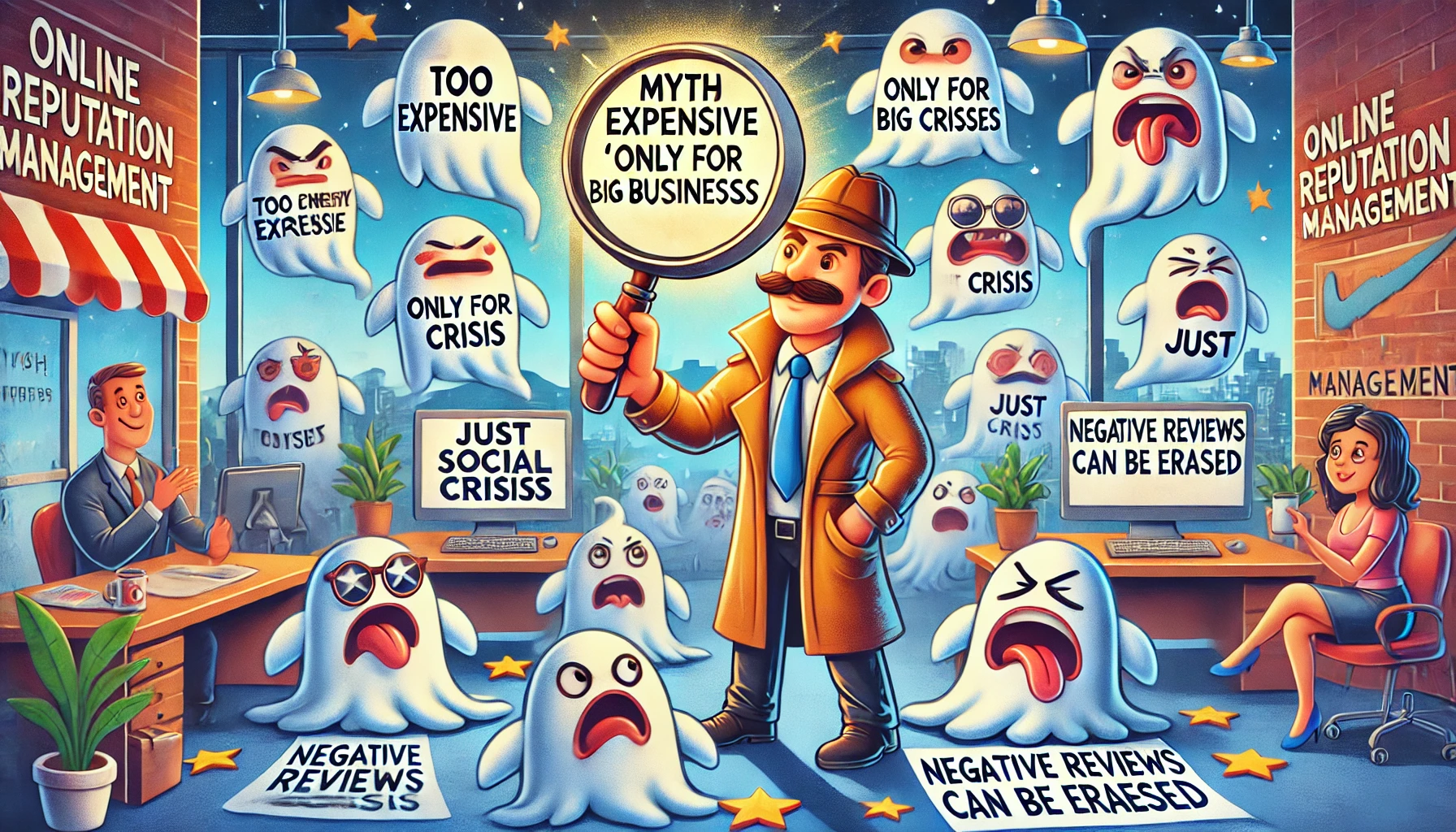Top marketing trends for financial businesses: Boost competitive edge

Effective marketing tactics are essential for financial institutions to maintain a competitive edge in today’s fast-paced market. This article explores the top trends and strategies to help financial businesses stay ahead.
Effective marketing tactics for financial institutions
Mobile marketing focus
With the increasing usage of mobile devices, the significance of mobile marketing is paramount. Local financial businesses need to ensure that their services are accessible and easy to use on mobile platforms to cater to customers on the move.
According to a recent survey, 81% of Americans own a smartphone, emphasizing the need for mobile-friendly services. Having a mobile-responsive website or a user-friendly mobile app can enhance customer experiences, leading to greater engagement and loyalty. In fact, mobile-friendly websites are 74% more likely to retain users.
Enhancing customer experience
Modern consumers seek services that are not only efficient but also tailored to their personal needs. Improving customer experience involves more than just excellent service; it requires leveraging data-driven insights to deeply understand customers and meet their specific requirements.
A study by PwC found that 73% of consumers cite customer experience as an important factor in their purchasing decisions.
Local SEO optimization
For local financial entities looking to draw more clients, search engine optimization (SEO) is vital. Optimizing SEO helps locals easily find your services online when they search for financial assistance.
Effective strategies include claiming your Google Business Profile, integrating local keywords into your web content, and accumulating positive customer reviews. According to Google, 46% of all searches have local intent.
Committing to content marketing
Content marketing revolves around providing valuable information to clients, such as simplifying complex financial subjects, offering advice, and answering FAQs. High-quality content not only drives traffic but also cements your reputation as a trusted authority in the finance industry.
Research indicates that companies with blogs generate 67% more leads than those without.
![]()
Leveraging data analytics
Data analytics is crucial for financial businesses to better understand their clientele. It helps in predicting market trends and customer behaviors, providing actionable insights that enhance marketing strategy formulation.
Data analytics can be utilized to determine optimal times for email campaigns or to identify the most popular services among customers, aiding in informed decision-making. According to a report by Deloitte, data-driven businesses are 23 times more likely to acquire customers.
Focusing on social responsibility
Contemporary consumers value how businesses contribute to societal issues. Showcasing your commitment to social responsibility, such as environmental efforts, financial education, or charitable activities, can enhance your brand’s reputation and appeal to customers with similar values.
Promoting these endeavors through social media, newsletters, or your website can serve as a powerful marketing tool. A Nielsen study found that 66% of global consumers are willing to pay more for sustainable brands.
Personalizing automated messaging
For local businesses pressed for time, automated messaging systems are invaluable. Personalization is crucial as customers are more likely to respond to messages that feel specifically crafted for them.
A study by Epsilon found that personalized emails deliver six times higher transaction rates.
Hosting online seminars and webinars
Online seminars provide a dynamic way to engage with clients, offering them valuable insights into your business and the broader financial sector. They are also an excellent opportunity to introduce new offerings, provide educational tutorials, or discuss current financial trends.
Engaging actively with your audience during live webinars can help solidify existing client relationships and attract new prospects. According to ON24, 76% of attendees are willing to share their contact information for webinars.
Investing in PPC advertising
Pay-per-click (PPC) advertising is a straightforward and efficient digital marketing approach for financial institutions. By placing ads on platforms that target your desired demographic, you can direct focused traffic to your website.
Effective PPC strategies allow you to connect with potential clients who are actively seeking the financial services you offer. A Google report shows that businesses make an average of $2 in revenue for every $1 they spend on Google Ads.
Exploring influencer partnerships
Influencer partnerships are a potent marketing tool not only for lifestyle and entertainment sectors but also for financial services. Collaborating with influencers who focus on financial topics can expand your reach and fortify trust in your services.
Choose influencers whose values align with your business to ensure authenticity and relevance in your partnerships. A study by Influencer Marketing Hub found that businesses earn $5.20 for every $1 spent on influencer marketing.

Customer-centric marketing in finance
Emphasizing the customer in marketing strategies
Customer-centric marketing places the customer at the heart of all marketing efforts. Financial institutions adapt their products and services to meet individual customer needs, enhancing client experiences and fostering long-term relationships.
Key elements of customer-centric marketing
- Personalized recommendations: Utilizing customer data to suggest products or services aligned with their financial goals.
- Tailored content: Developing specific content, such as retirement planning advice for nearing-retirement customers.
- Responsive customer service: Offering round-the-clock support through multiple channels to ensure accessibility.
- Feedback integration: Incorporating customer feedback to improve services and customer satisfaction.
- Client segmentation and customization: Grouping customers by needs for targeted marketing and customized financial plans.
- Loyalty and engagement: Implementing loyalty programs and regular updates to keep customers informed and engaged.
- Comprehensive communication: Maintaining transparency and sending timely alerts to foster trust and security.
Integrating AI and chatbots in customer service
Streamlining interactions with AI
AI and chatbots are transforming customer service by providing instant responses to queries, thereby improving efficiency and ensuring constant availability.
Benefits of AI in customer service
- 24/7 customer interaction: Chatbots handle routine inquiries, allowing human agents to focus on complex issues.
- Automated transactions: Assisting with account management tasks like bill payments and fund transfers.
- Enhanced customer support: Offering personalized advice and resolving issues promptly using AI-driven insights.
![]()
Expert opinions on financial business marketing trends
Jonathan Cresswell, Chief Marketing Officer at FinInnovate Solutions: “In 2024, we’re seeing a surge in personalized video marketing. Financial firms are utilizing AI-driven tools to create personalized video messages that address individual client concerns and showcase financial solutions tailored to their needs. This approach not only enhances customer engagement but also significantly boosts conversion rates.”
Dr. Emily Tran, Financial Technology Researcher at TechFin Labs: “The integration of blockchain technology into marketing campaigns is becoming a game-changer for financial businesses. By leveraging blockchain, companies can enhance transparency and build trust with clients, showing them real-time data on financial trends and the security measures protecting their investments.”
Marcus Davidson, Senior Consultant at MarketPro Financial Advisors: “Social responsibility and sustainability are no longer just buzzwords but pivotal marketing strategies. Financial institutions that openly commit to environmental and social governance are gaining a competitive edge. In 2024, transparent communication about these efforts is key to attracting the socially conscious investor.”

 6 min
6 min 







